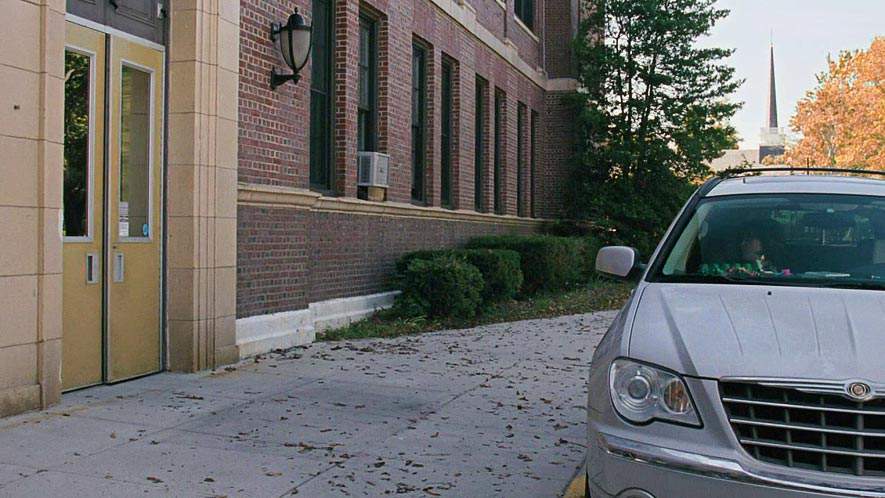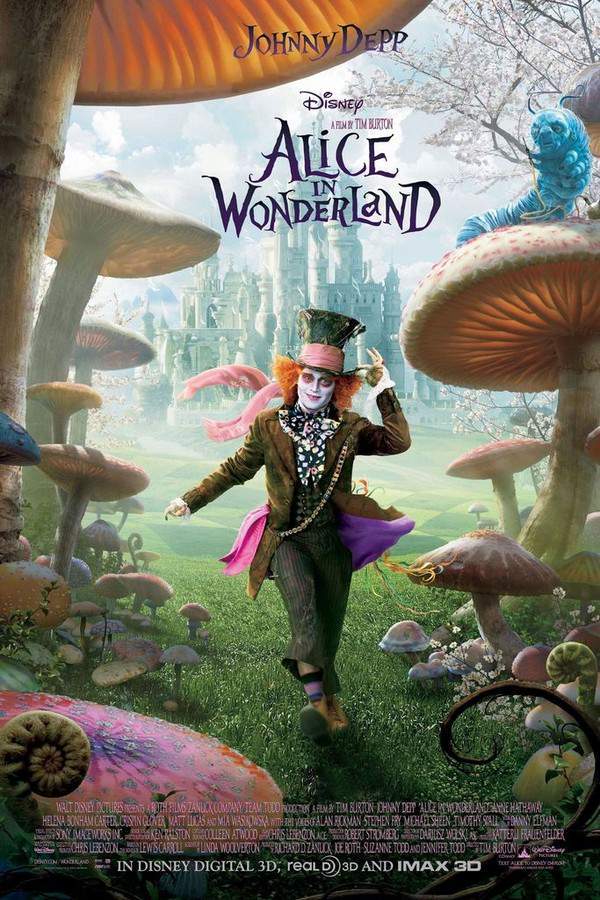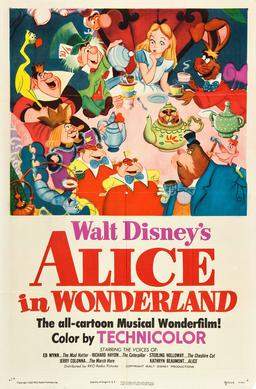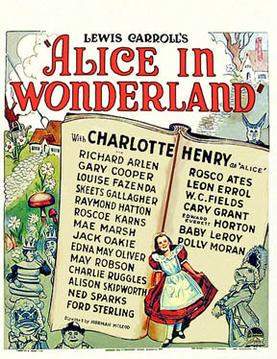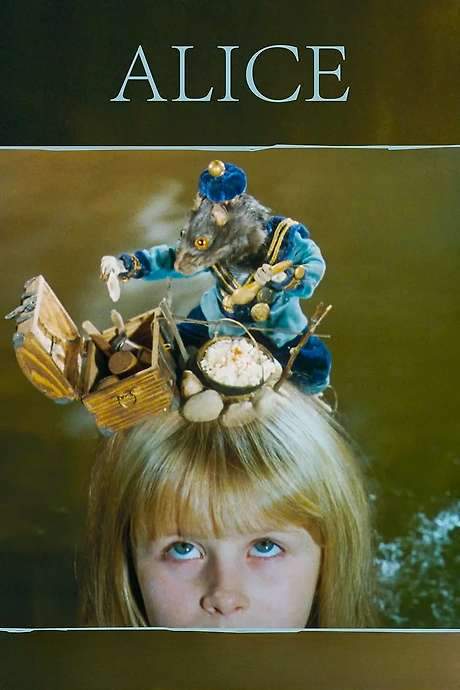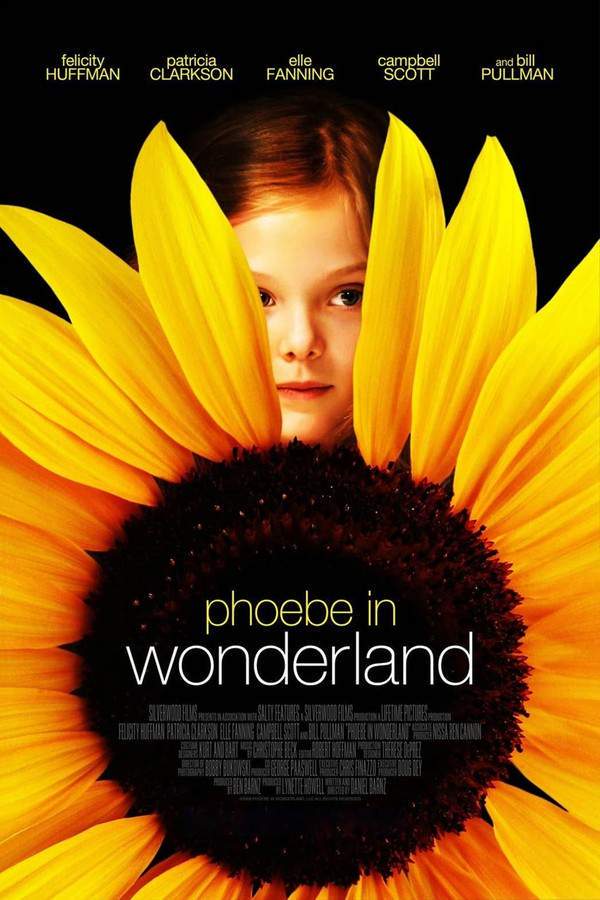
A young actress finds her dream role in a school production of "Alice in Wonderland," sparking a journey of self-discovery and blurring the lines between fantasy and reality. As Phoebe’s imaginative world intensifies, her parents struggle to understand and help her, questioning the nature of her creativity and fearing she might lose touch with reality. They must navigate her increasingly complex inner world to ensure her well-being.
Does Phoebe in Wonderland have end credit scenes?
No!
Phoebe in Wonderland does not have end credit scenes. You can leave when the credits roll.
Meet the Full Cast and Actors of Phoebe in Wonderland
Explore the complete cast of Phoebe in Wonderland, including both lead and supporting actors. Learn who plays each character, discover their past roles and achievements, and find out what makes this ensemble cast stand out in the world of film and television.
External Links and Streaming Options
Discover where to watch Phoebe in Wonderland online, including streaming platforms, rental options, and official sources. Compare reviews, ratings, and in-depth movie information across sites like IMDb, TMDb, Wikipedia or Rotten Tomatoes.
Ratings and Reviews for Phoebe in Wonderland
See how Phoebe in Wonderland is rated across major platforms like IMDb, Metacritic, and TMDb. Compare audience scores and critic reviews to understand where Phoebe in Wonderland stands among top-rated movies in its genre.

56
Metascore
7.7
User Score


61%
TOMATOMETER

70%
User Score

72
%
User Score
Take the Ultimate Phoebe in Wonderland Movie Quiz
Challenge your knowledge of Phoebe in Wonderland with this fun and interactive movie quiz. Test yourself on key plot points, iconic characters, hidden details, and memorable moments to see how well you really know the film.
Phoebe in Wonderland Quiz: Test your knowledge about the touching and complex story of 'Phoebe in Wonderland'.
What disorders does Phoebe Lichten suffer from?
Tourette syndrome and obsessive-compulsive disorder
ADHD and anxiety disorder
Depression and autism
Bipolar disorder and schizophrenia
Show hint
Full Plot Summary and Ending Explained for Phoebe in Wonderland
Read the complete plot summary of Phoebe in Wonderland, including all major events, twists, and the full ending explained in detail. Explore key characters, themes, hidden meanings, and everything you need to understand the story from beginning to end.
Nine-year-old Phoebe Lichten is a vibrant girl grappling with Tourette syndrome and obsessive-compulsive disorder, which makes her home life lively yet poses challenges at school. While at home, she expresses her creativity freely, but her unconventional behavior often alienates her from classmates. Her parents, Hillary and Peter, genuinely love her but seem to misinterpret her unique talents; for instance, Hillary, an author, compares Phoebe’s poetry style to that of the famous poet E.E. Cummings. In an attempt to bond with her peers, Phoebe forms a friendship with Jamie, an effeminate boy who faces bullying, but her social interactions are often hindered by impulsive actions, such as an incident where she spit in another student’s face during recess, which leaves her feeling isolated.
When the principal summons Phoebe’s parents to discuss her behavior, they downplay the situation, focusing more on their daughter’s supposed brilliance than the behavior that led them there. In hopes of opening Phoebe’s world, Hillary and Peter take her and her sister Olivia to a live performance of Swan Lake. The extravagance of the ballet, with its stunning costumes and enchanting music, captures Phoebe’s heart, prompting her to approach the school’s quirky drama teacher, Miss Dodger, who is often ostracized by fellow instructors. Initially hesitant, Miss Dodger quickly develops an understanding of Phoebe, especially once she learns about Phoebe’s compulsive handwashing habits.
Phoebe’s enthusiasm for the school’s upcoming production of Alice in Wonderland is contagious. She immerses herself in rehearsals, practicing every single line with the determination of an actress who fears being “fired” for any misstep. Her rigorous preparations include leaping off stairs until her ankles bear bruises and meticulously stepping on every cobblestone in her garden in the correct sequence. While Olivia tries to imitate Phoebe’s patterns, it becomes evident that Phoebe’s commitment to the play serves as more than a mere hobby; it represents a vital coping mechanism amid her tumultuous thoughts and emotions.
As she dives deeper into the play, Phoebe starts conjuring imaginary friends, most notably Alice herself. In light of her erratic behavior, her parents consult a therapist who suggests medication, but Hillary dismisses this idea. When questioned by the principal about Phoebe’s behavior outside of school, Hillary insists that nothing is amiss, despite being aware of her daughter’s troubling actions at home. An embarrassing episode during Halloween trick-or-treating, where Phoebe unkindly calls a heavy-set woman a “fat pig,” leads to her removal from the play, which devastates her and reinforces her feelings of being an outsider. In a desperate attempt to restore Phoebe’s confidence, Hillary collaborates with Miss Dodger to bring her back to the stage.
As Phoebe’s life spirals into a series of misunderstandings, she faces a false accusation of harming the class pet, Carlita the gerbil, which ignites her anger and results in her lashing out at her classmates. Meanwhile, Jamie experiences a fleeting victory when he lands the role of the Red Queen, only to see his joy marred by a hurtful homophobic comment regarding his costume. Phoebe, with her characteristic empathy, reaches out to Jamie in a show of friendship. Moreover, Hillary is surprised when Miss Dodger states that Phoebe has not shown troubling behavior during rehearsals, illustrating the stark contrast between Phoebe’s supportive relationship with Miss Dodger and the complexities of her home life.
As conflicts brew at home, Peter’s hurtful remark about Hillary’s capacity to manage another child profoundly affects Phoebe. In a quest for normalcy, she and Olivia excitedly express the wish for a new sibling, not realizing that Peter is increasingly anxious about Phoebe’s mental health.
Despite the hurdles, Phoebe is reinstated in the play, though her internal battles simmer just beneath her cheerful demeanor. Under Miss Dodger’s guidance, Phoebe learns the importance of self-acceptance—a lesson vital for her journey through adolescence. After a touching interaction with her imaginary friend, Alice, Phoebe reacts impulsively, jumping from a catwalk and landing badly, resulting in a broken wrist.
The repercussions of her actions are swift; Miss Dodger is dismissed by the principal, who questions her role in Phoebe’s incident. In a frenzied outburst, Phoebe’s peers destroy the play’s set, symbolizing their shared despair, yet amidst the turmoil, Phoebe finds a renewed sense of purpose.
In the wake of Miss Dodger’s exit, Phoebe steps forward, encouraging her classmates to keep rehearsing despite their grief. In a poignant exchange, Hillary candidly shares her own experiences with Tourette syndrome, enabling Phoebe to educate her friends about her condition, ultimately fostering an atmosphere of understanding and acceptance.
Uncover the Details: Timeline, Characters, Themes, and Beyond!

Coming soon on iOS and Android
The Plot Explained Mobile App
From blockbusters to hidden gems — dive into movie stories anytime, anywhere. Save your favorites, discover plots faster, and never miss a twist again.
Sign up to be the first to know when we launch. Your email stays private — always.
Watch Trailers, Clips & Behind-the-Scenes for Phoebe in Wonderland
Watch official trailers, exclusive clips, cast interviews, and behind-the-scenes footage from Phoebe in Wonderland. Dive deeper into the making of the film, its standout moments, and key production insights.
Cars Featured in Phoebe in Wonderland
Explore all cars featured in Phoebe in Wonderland, including their makes, models, scenes they appear in, and their significance to the plot. A must-read for car enthusiasts and movie buffs alike.
Phoebe in Wonderland Themes and Keywords
Discover the central themes, ideas, and keywords that define the movie’s story, tone, and message. Analyze the film’s deeper meanings, genre influences, and recurring concepts.
Phoebe in Wonderland Other Names and Titles
Explore the various alternative titles, translations, and other names used for Phoebe in Wonderland across different regions and languages. Understand how the film is marketed and recognized worldwide.
Similar Movies To Phoebe in Wonderland You Should Know About
Browse a curated list of movies similar in genre, tone, characters, or story structure. Discover new titles like the one you're watching, perfect for fans of related plots, vibes, or cinematic styles.
Quick Links: Summary, Cast, Ratings, More

What's After the Movie?
Not sure whether to stay after the credits? Find out!
Explore Our Movie Platform
New Movie Releases (2026)
Famous Movie Actors
Top Film Production Studios
Movie Plot Summaries & Endings
Major Movie Awards & Winners
Best Concert Films & Music Documentaries
Movie Collections and Curated Lists
© 2026 What's After the Movie. All rights reserved.


















